Many Africans escaping violence and poverty come to South Africa in search of a better life. But they often find themselves in danger in their new home, accused of taking jobs away from South Africans.
Photographer Shiraaz Mohamed caught up with some who live in Johannesburg’s Alexandra township and Hillbrow, an inner city neighbourhood, about what it is like to deal with xenophobia and crime on a daily basis.
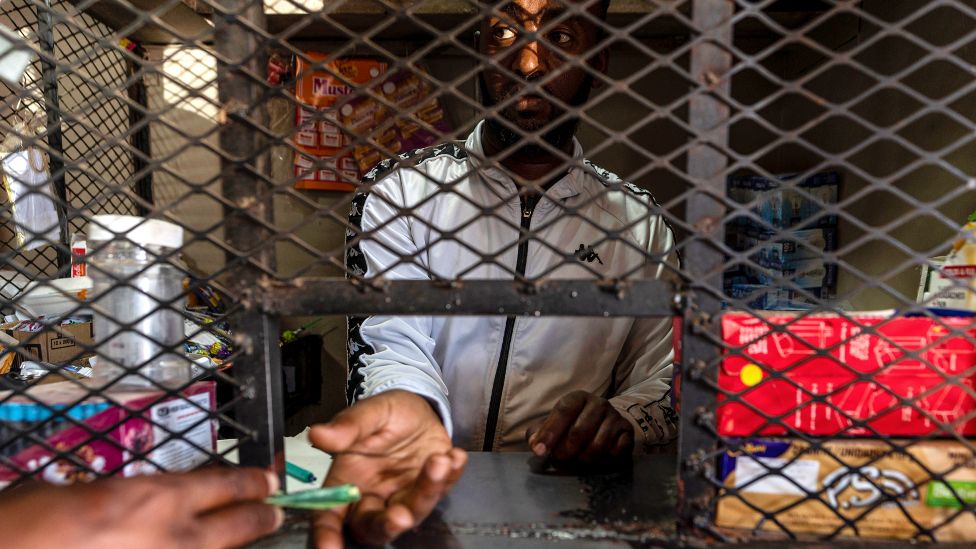 IMAGE SOURCE,BBC/SHIRAAZ MOHAMED
IMAGE SOURCE,BBC/SHIRAAZ MOHAMEDSupermarket owner Getachew Desta (above) fled Ethiopia in 2010 after he was suspected of supporting an opposition party and now lives behind a steel cage and burglar gates in Alexandra.
He says he finds life better here, but complains about the crime.
“I am OK being locked behind the cage as we don’t know when the criminals will strike. At any given time they can they pop up, point a gun at you and rob you of your money. They can also kill you.”
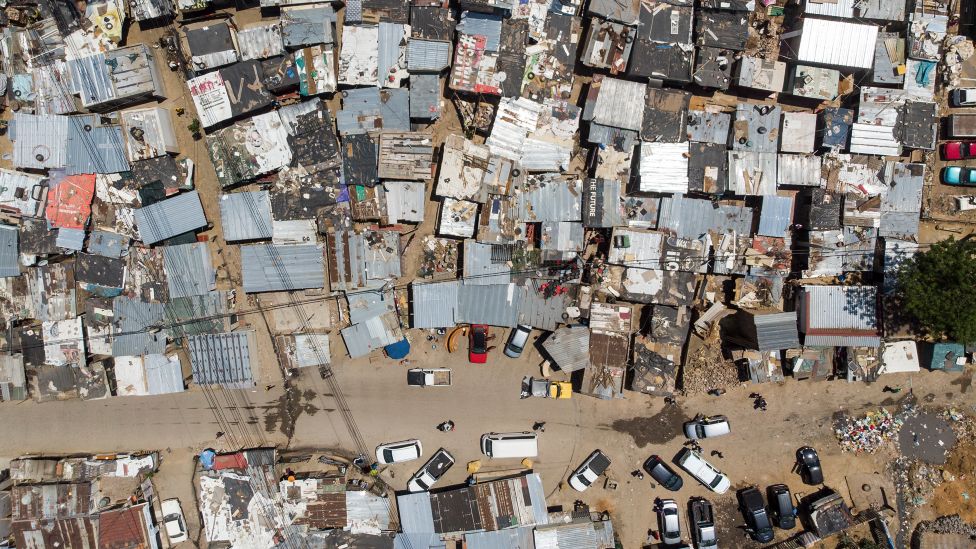 IMAGE SOURCE,BBC/SHIRAAZ MOHAMED
IMAGE SOURCE,BBC/SHIRAAZ MOHAMEDHe was a victim of xenophobia in 2016, when a mob ransacked his shop and he was left with nothing.
And again in July this year in the unrest that erupted after the imprisonment of ex-President Jacob Zuma for contempt of court. The violence hit two provinces and killed at least 340 people, with damages exceeding 50bn rand ($3.2bn, £2.4bn).
“It happened at night. I was not there. I called the police to alert them but they did nothing. I lost everything and had to borrow money from my family to restart, but it was not enough and I ended up buying my supplies on credit.”
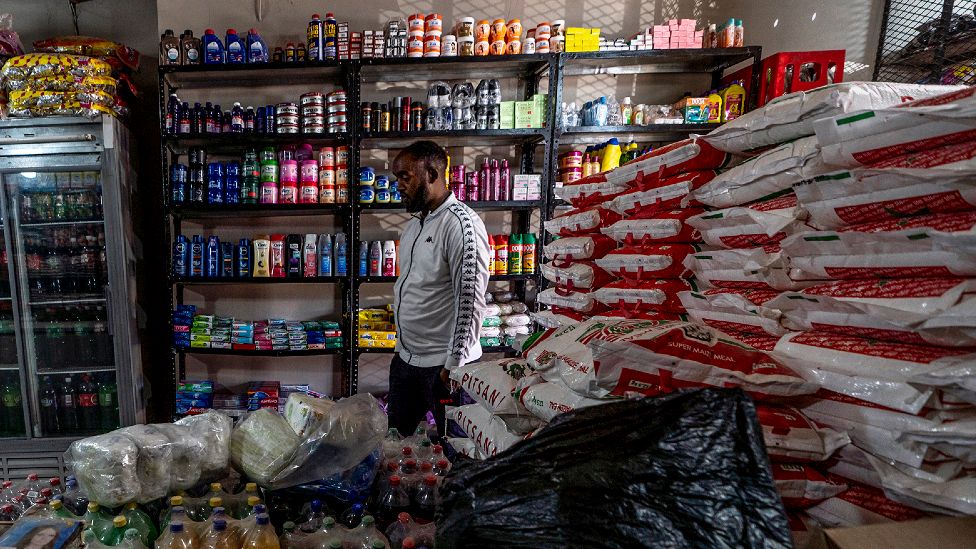 IMAGE SOURCE,BBC/SHIRAAZ MOHAMED
IMAGE SOURCE,BBC/SHIRAAZ MOHAMEDHe has also been kidnapped twice – in 2016 and 2019 – until a ransom of more than $3,000 was paid on each occasion.
The shopkeeper still prefers life here to returning to Ethiopia, but he has become increasingly despondent about the police as criminal cases are not followed up. “Police can’t do anything for foreigners here. It’s almost as if they do not care about us.”
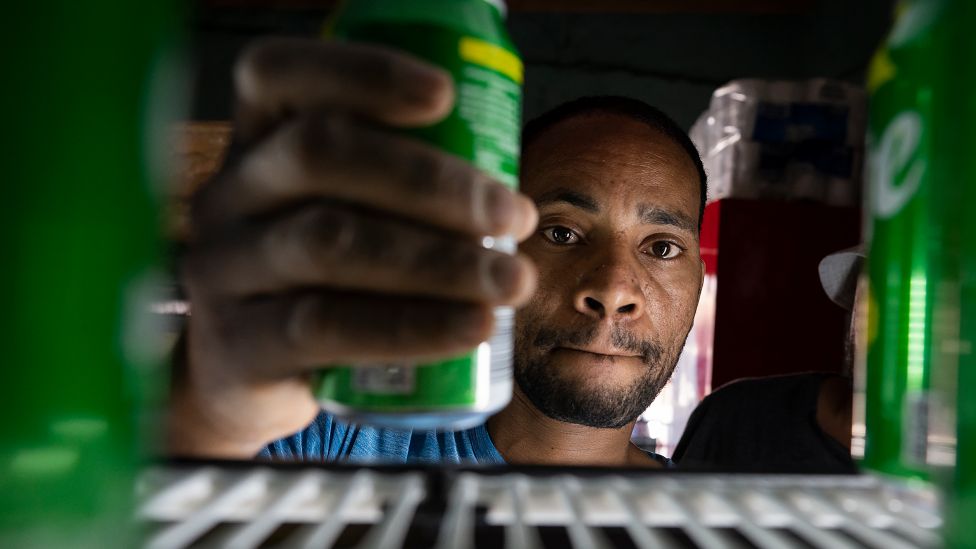 IMAGE SOURCE,BBC/SHIRAAZ MOHAMED
IMAGE SOURCE,BBC/SHIRAAZ MOHAMEDFellow Ethiopia supermarket owner Mulugeta Negash (above), who has been in Alexandra for 13 years, says the danger is so extreme he would consider going home.
“We are unable to get identity documents. As a result we cannot open bank accounts and have to carry around cash to buy stock. The thieves are aware of this, which puts us at risk,” the 34-year-old says.
He was also a victim of anti-foreigner attacks after he was beaten up by a mob and lost all his stock not long after he first arrived.
“I live in fear every day,” he says.
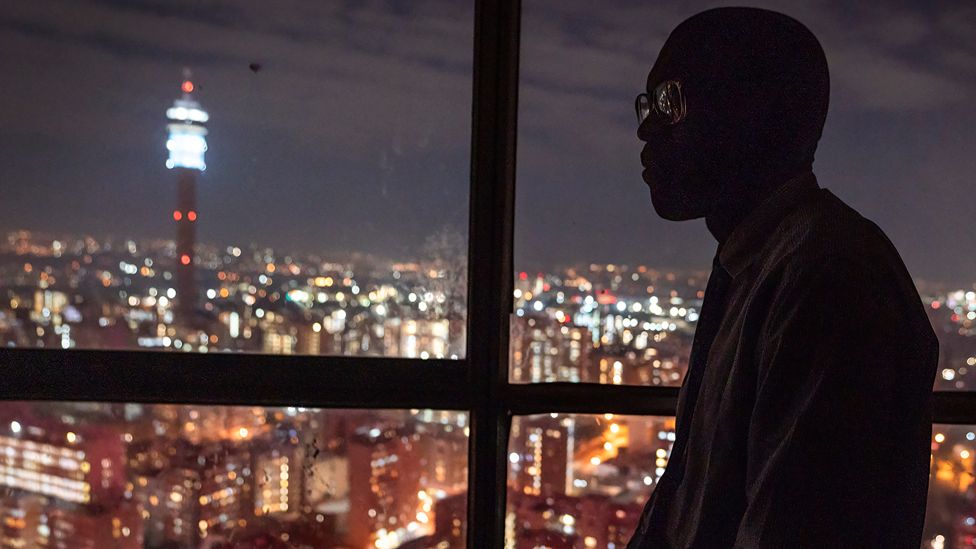 IMAGE SOURCE,BBC/SHIRAAZ MOHAMED
IMAGE SOURCE,BBC/SHIRAAZ MOHAMEDA 43-year-old man from the Democratic Republic of Congo (above) who lives in Hillbrow says he feels lucky to still be alive: “My best friend was attacked one morning [in the xenophobic violence in 2008].
“He was stoned to death like a dog.
“Imagine someone runs away from his own land and comes here to find peace but ends up getting killed.”
Asking not be named to protect his identity, he told of how he was smuggled into South Africa in a lorry 20 years ago when Catholic missionaries helped him escape from jail after he got into trouble for criticising the Congolese president at the time.
It was difficult for him to find work at first as he could not speak English, but after he was granted refugee status in 2008 he was able to train as a security officer – and is now married and has a family with a fellow Congolese national.
Despite his fears he says he is grateful that he is able to feed his family – his one regret is that he has been unable to make contact with his parents and does not know if they are alive.
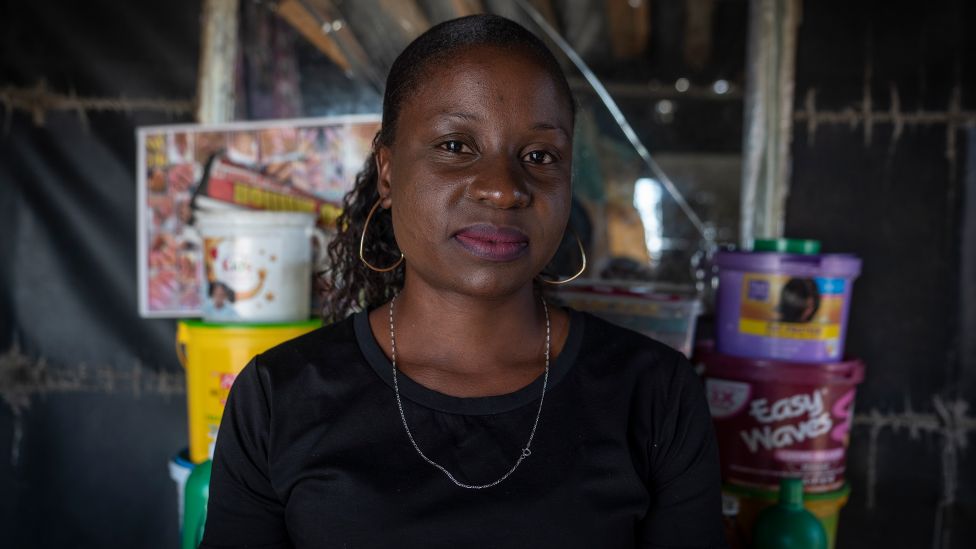 IMAGE SOURCE,BBC/SHIRAAZ MOHAMED
IMAGE SOURCE,BBC/SHIRAAZ MOHAMEDMozambican Nelfalda Dule (above) is also proud that she can support herself and her family in South Africa. She runs a hair salon from a pavement on a busy road in Alexandra.
But this also puts her at risk in a township where robberies are an everyday occurrence. She lives within a large Mozambican community and they tend to stick together for safety reasons.
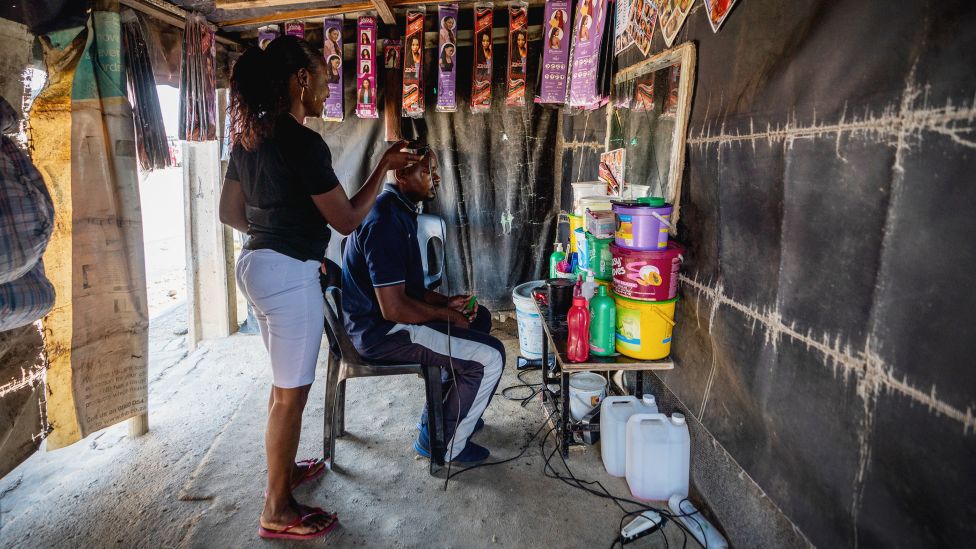 IMAGE SOURCE,BBC/SHIRAAZ MOHAMED
IMAGE SOURCE,BBC/SHIRAAZ MOHAMEDMs Dule says the most hurtful thing is the insults that South Africans often hurl at her, using the term “kwerekwere”, a derogatory word for African migrants.
“This is something that causes me to be sad,” she says.
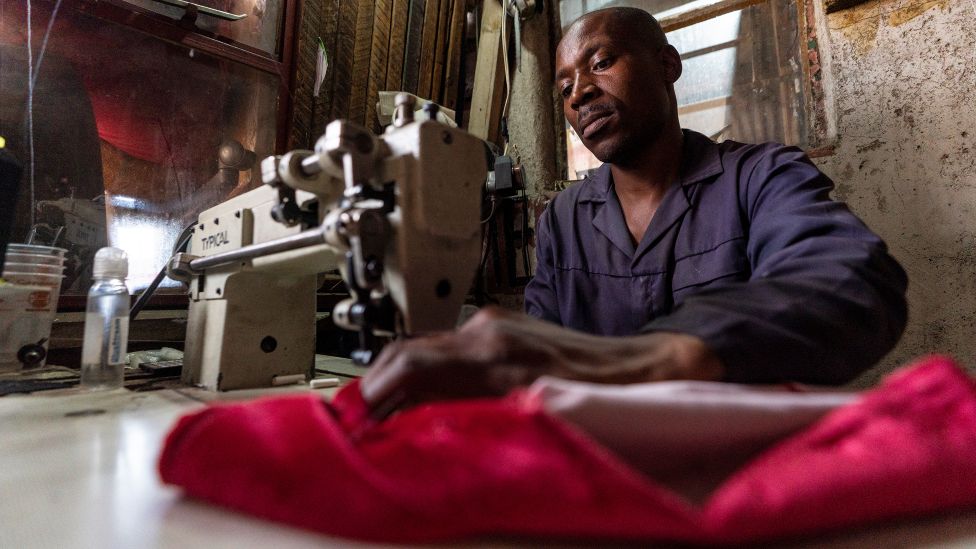 IMAGE SOURCE,BBC/SHIRAAZ MOHAMED
IMAGE SOURCE,BBC/SHIRAAZ MOHAMEDFellow Mozambican Mateu Madjila, who has lived in Alexandra for the last decade running an upholstery business, says he also tends to get called “kwerekwere”, despite being married to a South African woman with whom he has three children.
“All the people living in South Africa look down on people from Mozambique, Zimbabwe or any other country – life is not easy,” he says.
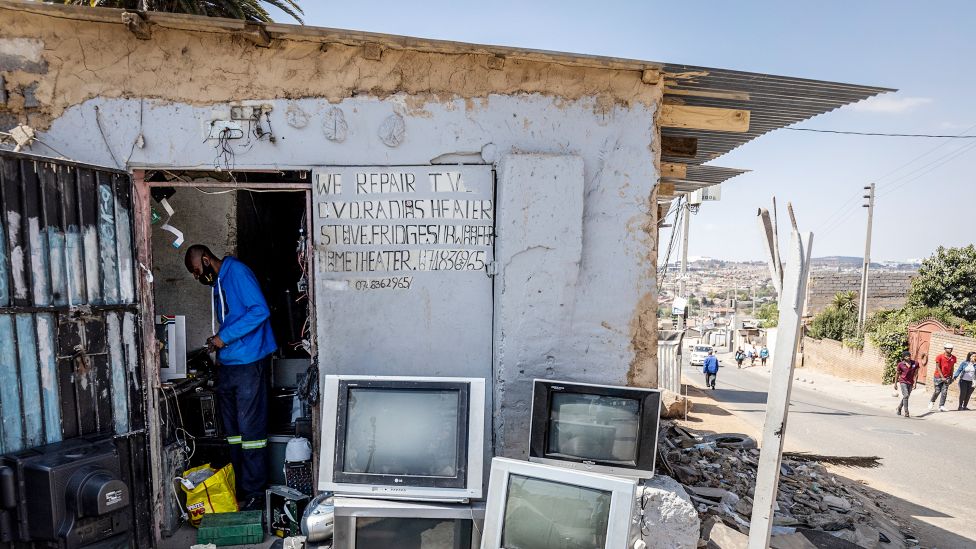 IMAGE SOURCE,BBC/SHIRAAZ MOHAMED
IMAGE SOURCE,BBC/SHIRAAZ MOHAMEDFor 41-year-old Philimon Gwetekwete, who came to Alexandra from Zimbabwe in 2016, South Africa’s opportunities are what counts.
He repairs television sets as well as appliances – a trade he learnt back home.
“It was tough in Zim, I had no job and I have six children. Life is better here but I am struggling because there are not a lot of repair jobs. I am making money but it is not enough because the lockdown messed things up.”
Other Zimbabweans seem equally sanguine about their situation, accepting that life is tough but better than at home.
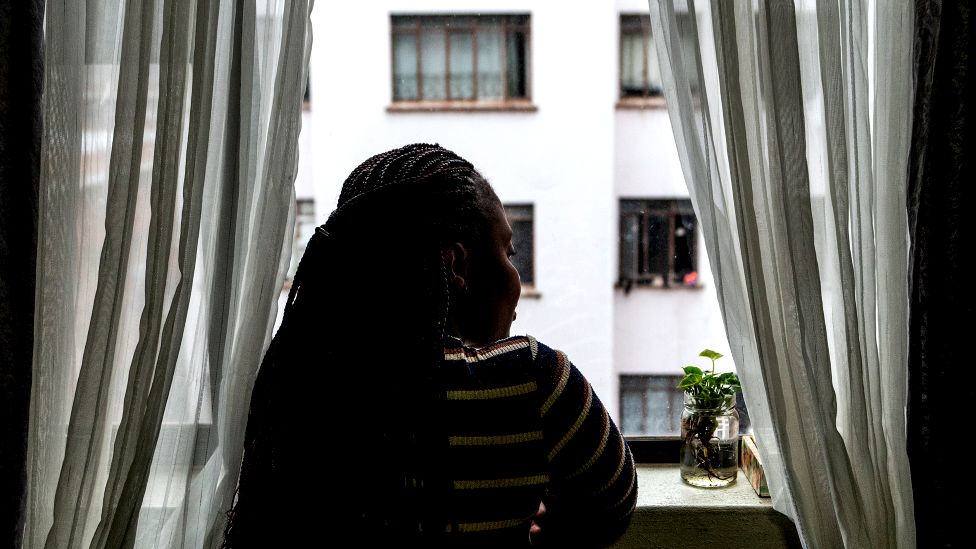 IMAGE SOURCE,BBC/SHIRAAZ MOHAMED
IMAGE SOURCE,BBC/SHIRAAZ MOHAMEDA 40-year-old domestic worker (above), who moved to South Africa from Zimbabwe with her family as a teenager, says drugs are her greatest concern.
Asking not to be named, the single mother of three said that Hillbrow was notorious for its drug gangs believed to involve foreigners: “Life is very tough here. We are living under the drug dealers. I am afraid that my kids can get hooked.”
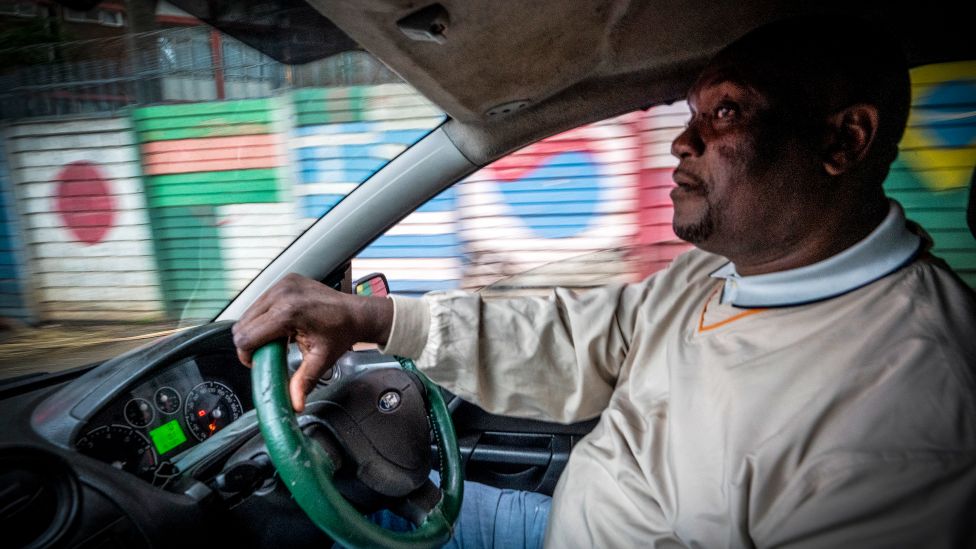 IMAGE SOURCE,BBC/SHIRAAZ MOHAMED
IMAGE SOURCE,BBC/SHIRAAZ MOHAMEDFifty-one-year old Zimbabwean Jafter Ndlovu has also spent a long time in South Africa, arriving 30 years ago in search of work and starting out as a waiter.
He saved enough money to buy a second-hand car to start a taxi business which operates around Hillbrow.
His main angst is that his taxi firm has been severely affected by popular ride hailing company Uber.
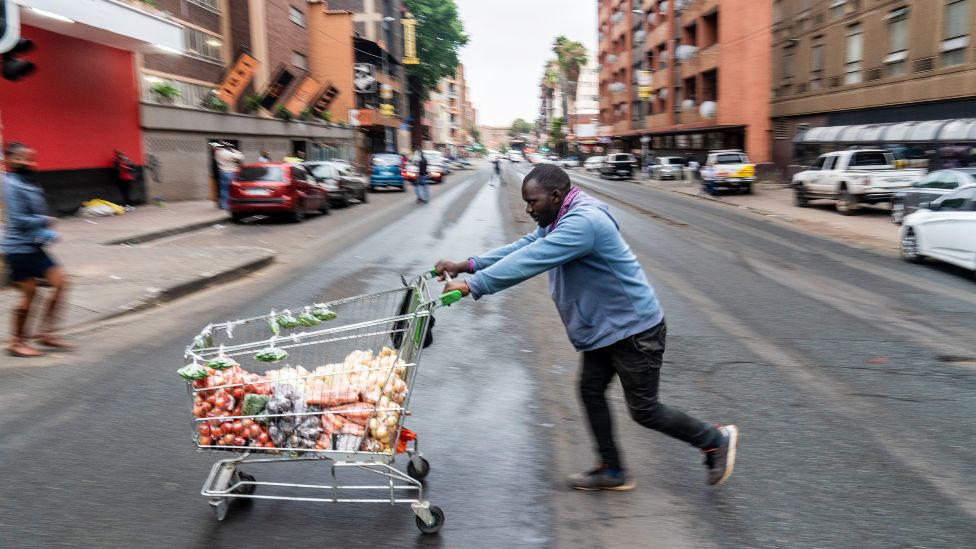 IMAGE SOURCE,BBC/SHIRAAZ MOHAMED
IMAGE SOURCE,BBC/SHIRAAZ MOHAMEDHelder Massingue, a 27-year-old Mozambican, has been in South Africa for 10 years. He struggles to make a living selling vegetables in Hillbrow – it costs him $30 a day to buy the produce which can go to waste.
He is also under constant threat from the police, as officers can confiscate his goods as he is not allowed to sell from the pavement.
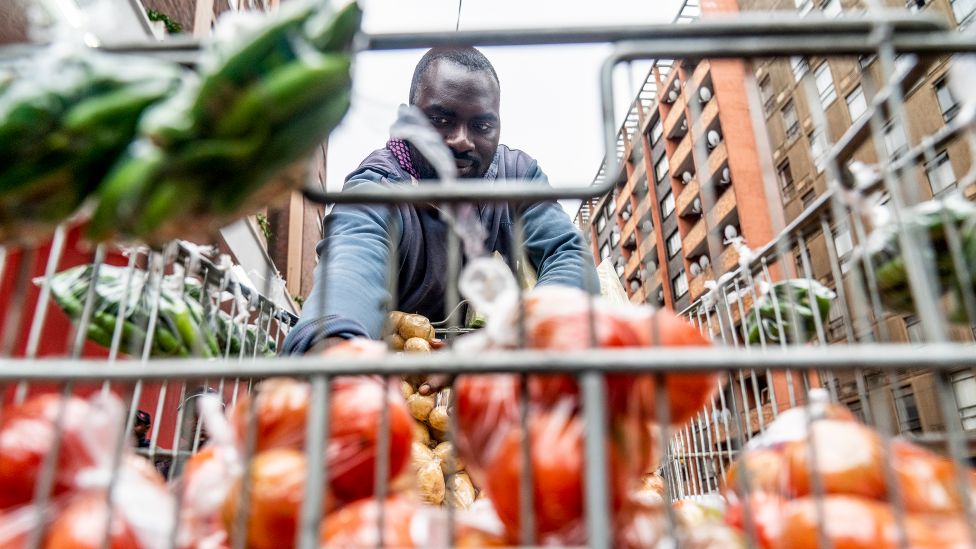 IMAGE SOURCE,BBC/SHIRAAZ MOHAMED
IMAGE SOURCE,BBC/SHIRAAZ MOHAMED“When you are a foreigner you don’t have an identity document so you cannot get a good job. But I keep trying because I don’t want to get involved in criminal activity.”
Like most migrants, he says it is a matter of survival as he needs to earn money for his mother and daughter who remain in Mozambique.



No comments:
Post a Comment
Note: only a member of this blog may post a comment.